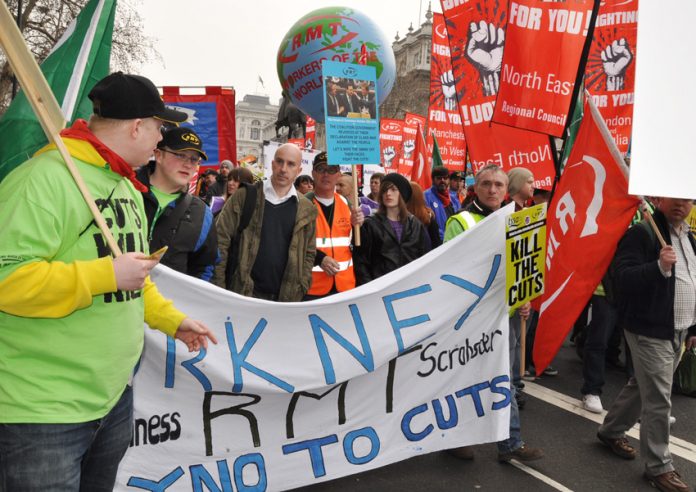
FOLLOWING a global collapse in the price of oil, oil giant BP yesterday announced it is to cut 300 jobs in its North Sea operations and a further 11,000 elsewhere in the UK.
Both the GMB and RMT unions represent North Sea oil workers. The RMT has called for an immediate halt to the ‘slash-and-burn’ job cuts programme.
The GMB called for BP to ‘hold off from making fundamental decisions affecting the long-term future of this industry’.
Oil prices have dropped around 60% since June 2014, to $48 a barrel. Governor of the Bank of England, Mark Carney, told MPs on Wednesday that the halving of oil prices in the last six months will harm the Scottish economy as its fortunes are dependent on North Sea oil.
He warned, ‘It is a negative shock to the Scottish economy, but it is a negative shock substantially mitigated by the fiscal arrangements in the UK.’
The 300 jobs include 100 contractor jobs and it is believed that most of the cuts will be onshore. BP employs 3,500 staff in the North Sea out of a total of 15,000 across the UK and 84,000 across the world.
David Hulse, GMB National Officer, said, ‘GMB is asking contractors and clients in the North Sea oil and gas industry to hold off from making fundamental decisions affecting the long-term future of this industry until we have all had a proper chance to assess the current situation and what needs to be done including action by UK and Scottish Governments. We do not want decisions made on the hoof that could have long-term implications.’
General Secretary of the RMT, Mick Cash, said: ‘The announcement from BP is a devastating blow to hundreds of workers in the UK energy industry and we are being warned that there is much worse to come.
‘RMT believes that the industry is making offshore workers carry the can for their failure to plan for lean times such as these. Instead they have gone for a short-term “slash-and-burn” approach that will have long-term implications for the future of the entire industry and the security of the UK’s energy supplies.
‘RMT, along with our sister unions, is meeting with Oil and Gas UK tomorrow where we will be pushing for a halt to the job cuts programme and an emergency package of measures to stave off the destruction of both jobs and infrastructure.
‘The union is also continuing to lobby politicians for incentives to allow exploration, maintenance, safety and engineering development works to take place during this emergency period for the industry.’
BP said that the job cuts were a result of ‘toughening market conditions’. The company has been downsizing since the Deepwater Horizon oil spill in the Gulf of Mexico in 2010.
Oil prices hit record highs above $147 a barrel in July 2008. Then when the global economic crisis hit, by December of the same year the price of oil plummeted to around $30 before rising sharply again.
BP is the latest in a string of North Sea operators to announce job losses, with Shell cutting 250 jobs last August, and Chevron losing 225 in July.